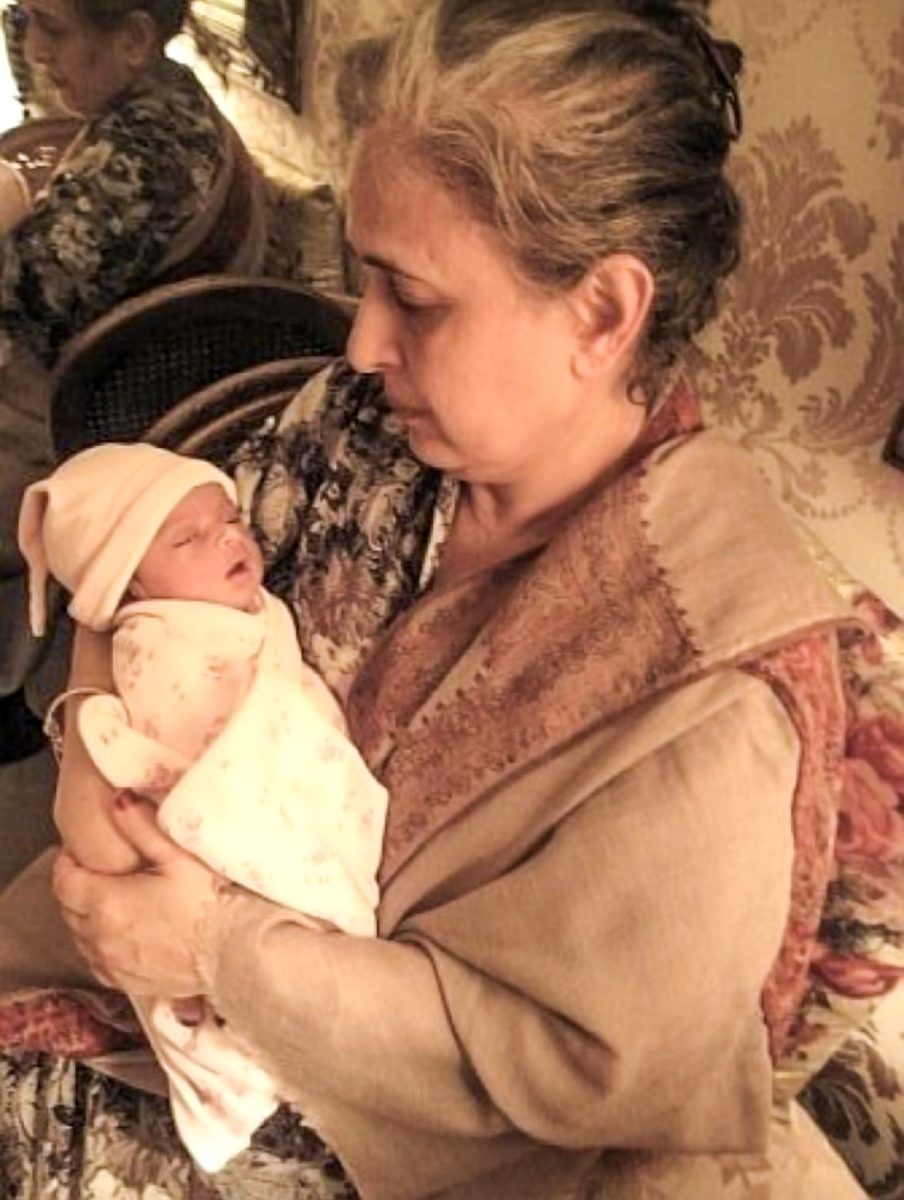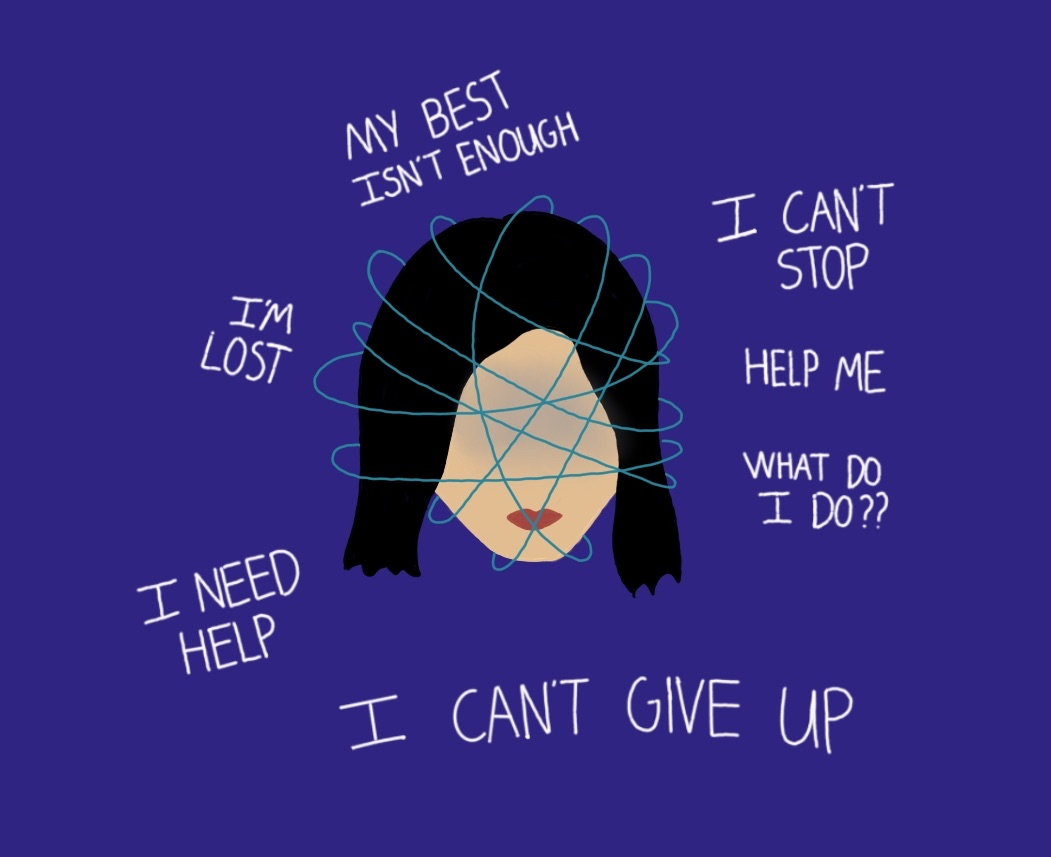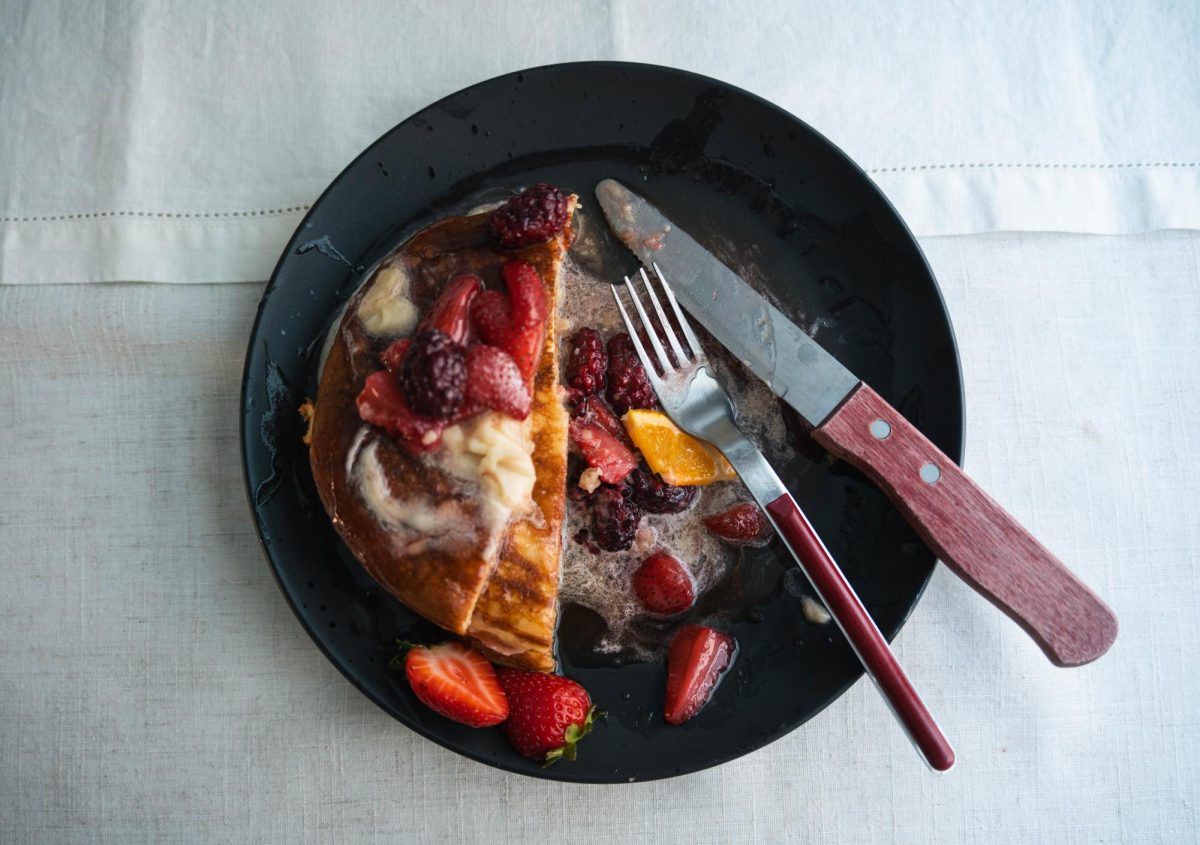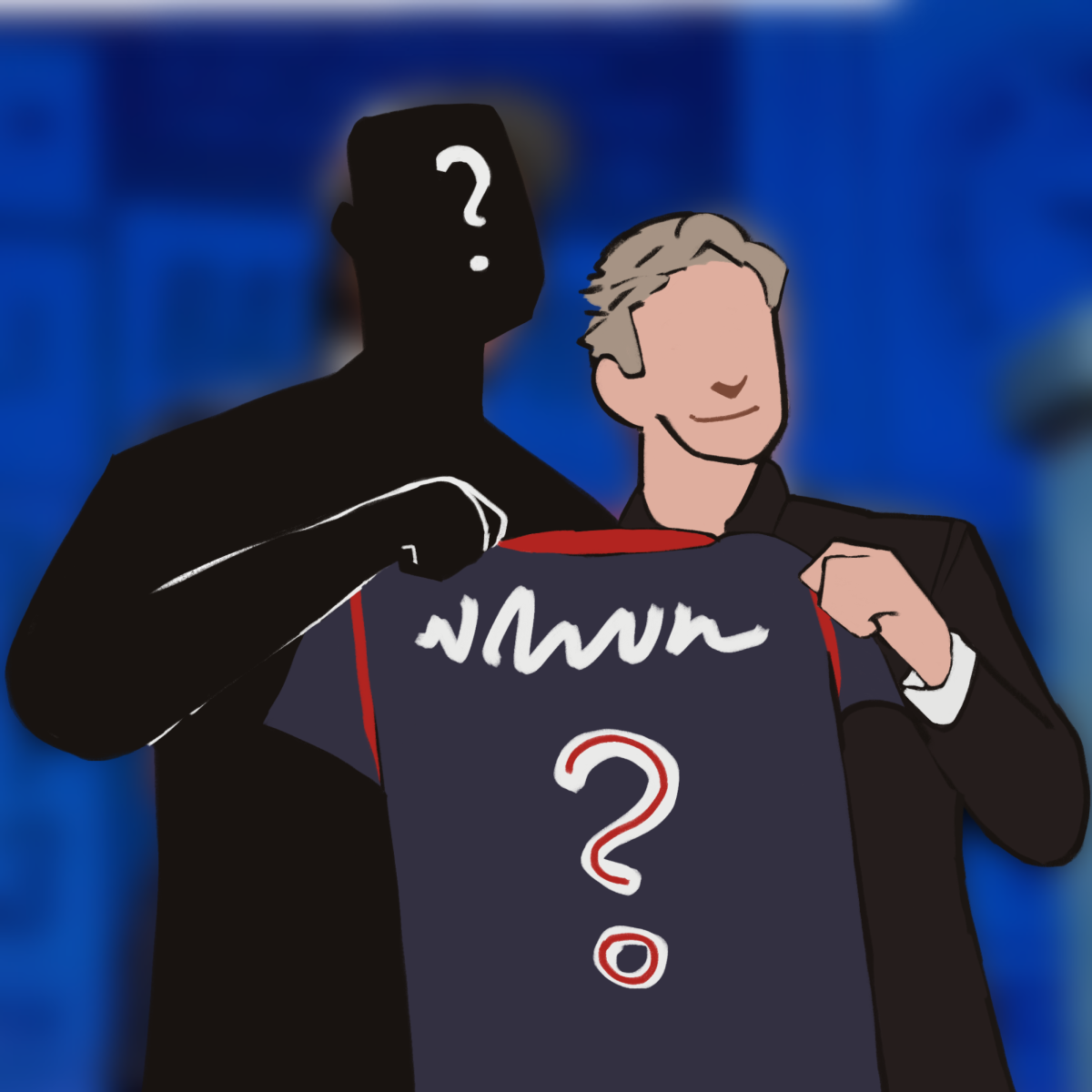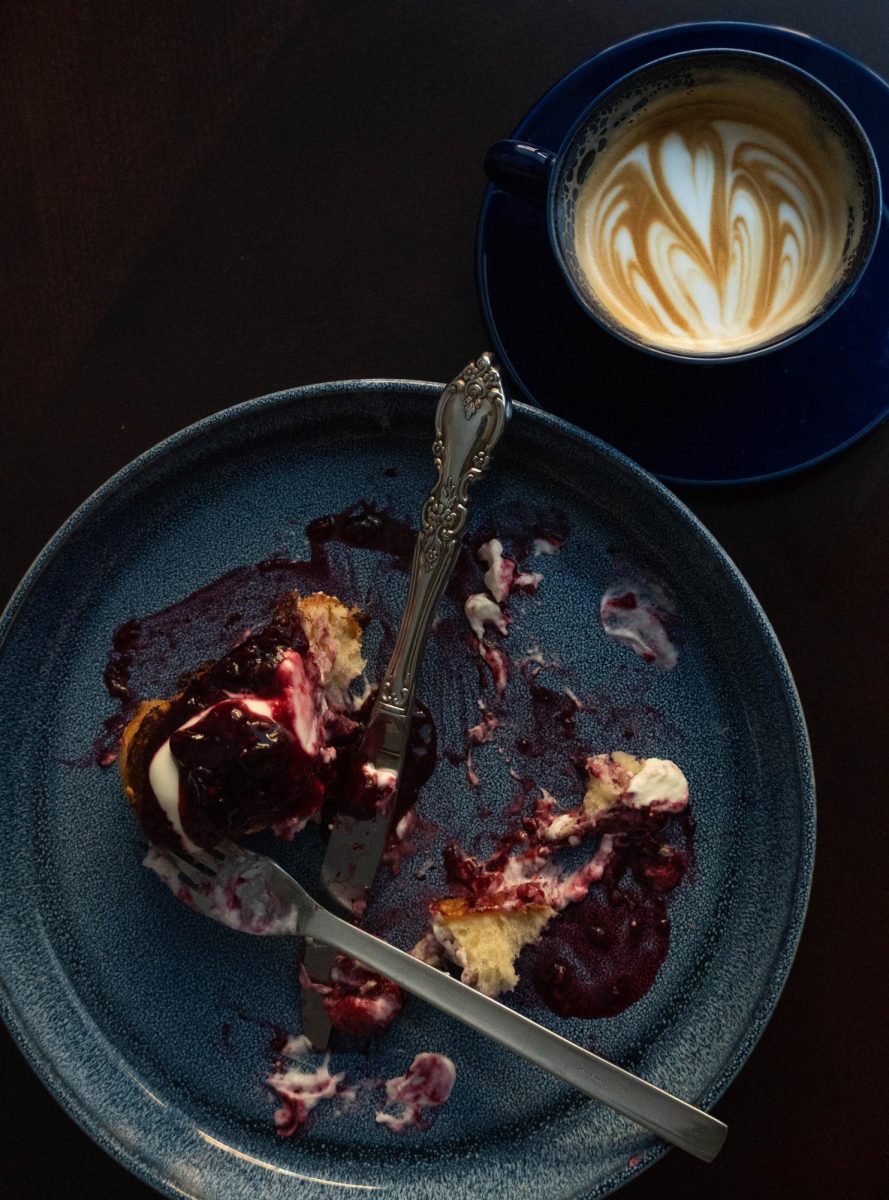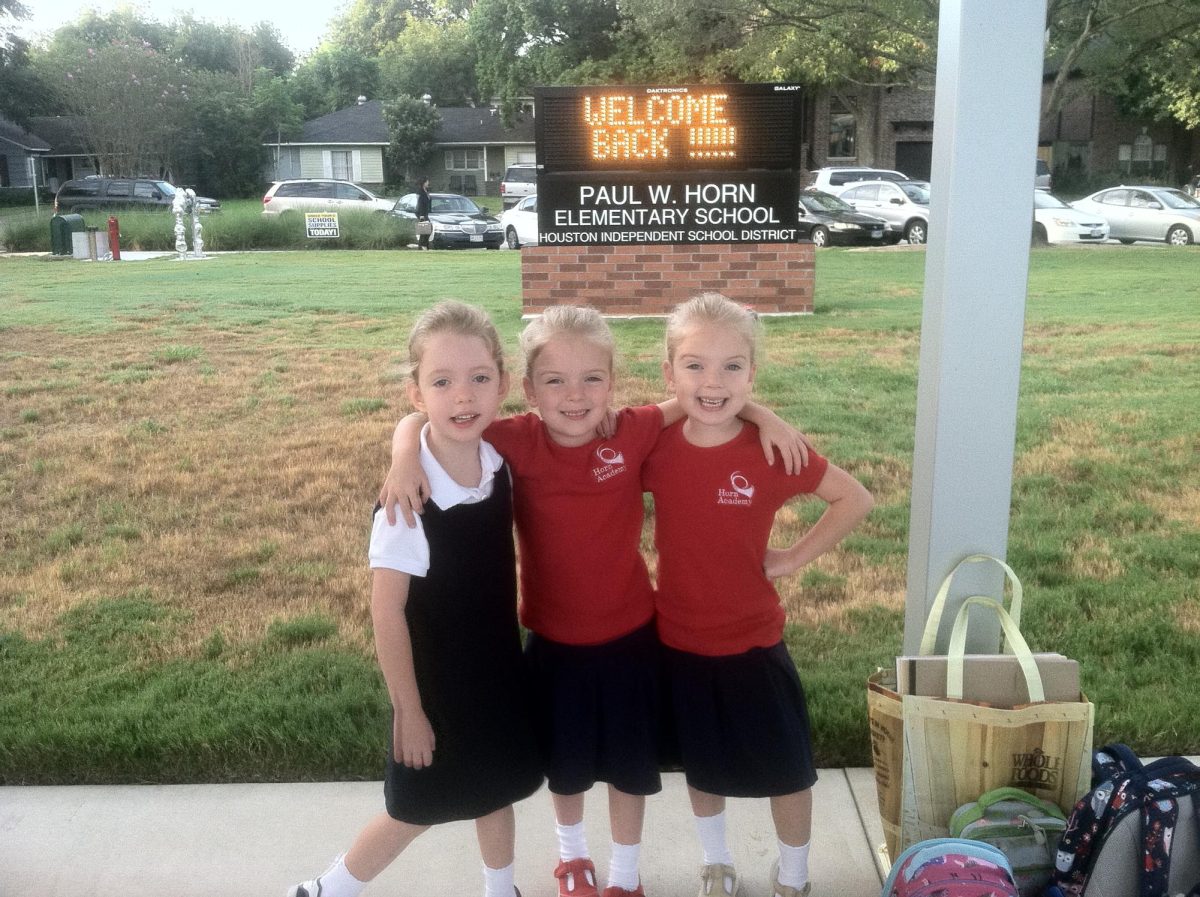I hear the adhan from my mom’s phone, signaling that it’s time to break our fast. At the dinner table, set for a family of five, a date is placed on each person’s plate. Rooafza, the staple Ramadan drink – a sweet red syrup mixed with water – shines in a large glass pitcher. Prayer mats are placed precisely toward the Kaaba, and the crescent moon shines brightly through the large window panes. Sparkling decorative lights in shapes of stars and crescent moons are hung on every wall, lighting up my home. The kitchen is filled with a variety of samosas, fruit salad, soup and an array of chutneys and spices.
It’s the first night of Ramadan – the beginning of a 30-day journey.
There’s something so special about taking a bite of a date and instantly feeling satiated. After fasting for 12 hours and 31 minutes, taking a bite of the delicious dried fruit feels so rewarding and replenishing. Directly after eating this small snack, I pray with my family, bringing us closer and strengthening our beliefs. By the second week, I always notice how much sharper everything feels. All five senses are much more alive, as if fasting takes away distractions and makes me aware of the small things around me like the ticking of the clock as I count down the last few minutes before breaking my fast, the coolness of water after a long day and the quiet sense of peace that settles over me during prayer.
Ramadan, a special month for Muslims, is filled with connections of family, food, comfort and dedication – but most importantly, faith.
It is the ninth month in the Islamic Calendar and is one of the most sacred times of the year. It signifies the period when the holy Qur’an was first revealed to Prophet Muhammad in the Cave of Hira, and is celebrated by roughly 2 billion Muslims fasting from dawn to sunset, strengthening both physical and spiritual growth, practicing self discipline and acquiring a deeper sense of gratitude and empathy for those in need. It’s seen as a chance for reflection and hoping for greater moral character.
It’s been seven years since my first fast, and I still remember that day like it was yesterday; waking up at five in the morning, eating and drinking as much water as I could, and leaving it all behind until sunset. It was challenging as my 9-year-old self watched everyone at school enjoying their lunches and drinks while I sat, envying the array of food. However, my yearning gave me the dedication and determination to continue fasting year after year, which gradually lessened my struggle of watching others feast. That first fast felt like an endurance test. Now, it feels like a choice. Not something I have to do, but something I get to do.
Ramadan promotes a sense of community, as many Muslims come together to break their fast and participate in prayers at their local mosques. My family’s Ramadan traditions include gathering for Iftar, or “breaking the fast” with close family and friends, usually at a relative’s house or at our mosque. Every Ramadan, we host a night filled with connection, laughter and traditional cuisines. The dinner table is covered in steaming plates of biryani, kebabs, and samosas. There’s always this moment, right before we eat, when the whole room stills. Eyes glance at the clock, everyone waiting for the exact second we’re allowed to take that first bite. And then, all at once, the silence breaks. It’s the sound of relief, gratitude and laughter.
My family also upholds a tradition of connecting with our close ones. On the first night, we call our relatives, whether they live nearby or in distant areas, to exchange warm wishes for a blessed and peaceful 30 days. These calls are filled with heartfelt words, warm smiles and reflections on past Ramadans, creating a sense of comfort despite the physical distance.
Beyond phone calls, my family also shares the spirit of Ramadan through food, an essential part of our culture and hospitality. We prepare and send traditional dishes to family friends, making sure they have something special to break their fast with. Plates of homemade lentil soup, pakoras, dates and fresh fruit are carefully arranged and delivered with love. Sometimes, I share food with close friends, letting them try some traditional Pakistani food.
Another important tradition my family continues during Ramadan is giving back to those in need. A few days into Ramadan, we gather around the dining table, filling care bags for the homeless with bottled water, granola bars, fruit snacks, socks and travel size hygiene products. I add handwritten notes with simple but heartfelt messages like “You are loved” or “God is with you.” Once the bags are packed, we donate it to a local charity center that helps families in need. I also hand a few bags to some people I see near my street. I’ll always remember the exact moment when someone’s face lights up with gratitude when they receive a bag. It serves as a humbling reminder of how even the smallest acts of kindness can make a difference.
One of the most memorable moments of Ramadan for me happens late at night, during Taraweeh prayers, or extra prayers done during the month, either at home or at the mosque. There’s something about standing in a room full of people, all reciting the same words, bowing at the same time, that makes me feel deeply connected to my faith.
The first time I prayed Taraweeh, I was mentally and physically exhausted, shifting my weight from foot to foot while I stood for several minutes, wondering how much longer it would last. But over the years, I’ve come to appreciate the stillness it brings. The clear recitation of the Qur’an, the soft murmurs of people around me, the quiet shuffling of feet against the prayer mats.
Ramadan has become more than just a month of fasting for me; I’ve realized that the true meaning of this month is to focus on deep personal growth and spiritual connection. Each year, as I observe my family’s traditions, I find myself more aware of the blessings in my life and the small moments that make this month so special. From the small moments of breaking my fast with a date to the fulfillment I feel when giving back to others, Ramadan has helped me strengthen my relationship with my faith and relationship with others.
Over the years, I’ve learned to embrace the challenges of fasting, not as something to endure, but as a privilege that allows me to reconnect with my beliefs and grow closer to those around me. Ramadan has taught me the value of reflection, discipline and the importance of being grateful, making it a sacred and transformative time in my life.




